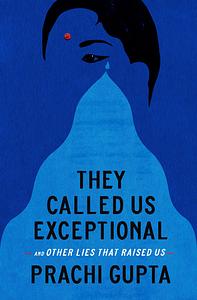You need to sign in or sign up before continuing.
Take a photo of a barcode or cover
emotional
medium-paced
challenging
emotional
reflective
medium-paced
I liked the way she wrote this story to her mother. She’s an excellent story teller - I do think the book lost flow towards the end. Still recommend highly 💛
emotional
reflective
sad
emotional
inspiring
reflective
sad
fast-paced
dark
emotional
reflective
sad
tense
fast-paced
emotional
reflective
sad
tense
medium-paced
dark
emotional
reflective
sad
medium-paced
Graphic: Death, Domestic abuse, Emotional abuse, Mental illness, Gaslighting
Moderate: Colonisation
challenging
emotional
tense
medium-paced
Gupta articulates such challenging parts of her upbringing with grace and dignity. I admire her courage and excellence navigating life as a young woman. She’s truly exceptional and has learned so much of life by standing up for what she believes in. Great read!
Graphic: Domestic abuse
Moderate: Death, Emotional abuse, Physical abuse, Self harm, Sexism, Suicidal thoughts, Toxic relationship, Grief, Suicide attempt, Gaslighting, Abandonment, Dysphoria, Injury/Injury detail
Minor: Chronic illness, Rape, Sexual assault, Medical content, Medical trauma, Alcohol, Classism
dark
emotional
reflective
sad
medium-paced





